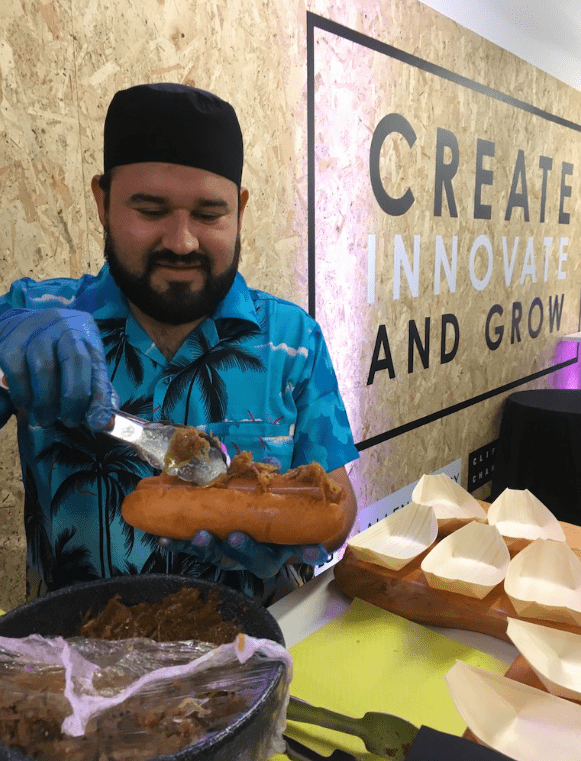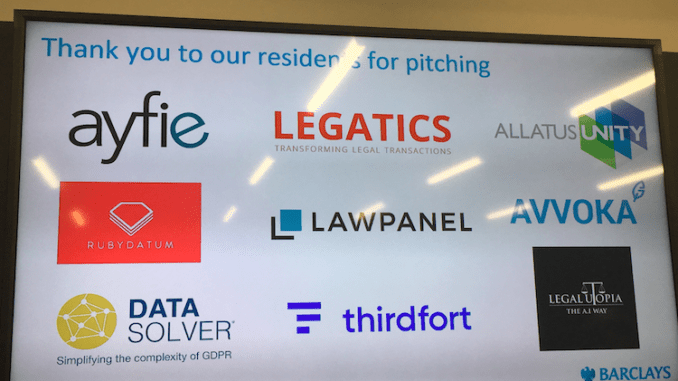
Last night was Pitch Day at the Barclays Eagle LawLab at Notting Hill in London. It was an excellent event, as always, (Artificial Lawyer has been to three events there so far, including some where tech co.s pitched), but this one was a little different as there was a panel of lawyers and tech professionals from law firms.
The panel was chaired by Emma Wright a partner at tech specialist law firm, Kemp Little, and the panelists were: Bryan Shaw (TLT Solicitors), Anthony Vigneron (Clifford Chance), Jeremy Hopkins (Baker McKenzie) and Nadine Bairle (Clyde & Co).
And it was a comment from Vigneron, who is Director of Legal Technology Solutions in London at the global law firm Clifford Chance, that really made the benefits of something like the LawLab truly real.
The panel was discussing aspects of how startups and law firms can work better together. The point was raised that working with new legal tech companies can sometimes create frustrations for law firms.
Then Vigneron said this: ‘I’m sure they are frustrated with us as well. That’s why spending time here (in the LawLab) is good, as we can work on the same issues.’
Vigneron then gave an example: ‘We all have the same security issues, so we can share up front (what is needed) to avoid redesign later. That’s an important part of Barclays LawLab.’
It struck Artificial Lawyer that this really sums up what all incubators, accelerators and other sponsored co-working spaces should be doing: sharing information and know-how among ALL stakeholders so that everyone in the legal tech ecosystem can meet the standards and protocols the clients want and need to get the tech adopted and implemented fully across the business.
Because, at the end of the day this is what it is all about: implementation so that real business transformation can take place. It’s the bigger picture.
There’s no point bringing so many great startups and young legal tech companies together in one place, give them great exposure to clients who can then express the problems they need solving, if the entrepreneurs who created solutions end up working in silos, or even in competition against each other, which could halt communication and the sharing of ideas.
Equally having multiple law firms supporting a group of tech companies also works wonders, if they all also open up and collaborate to set common standards that the startups can fit into. It’s a win-win.
Fundamentally the law firms (or at least some of the lawyers and associated professionals inside them) want real change to how things are made. This can only be done with the help of the tech vendors (in most cases). And implementation of a dozen different point solutions that don’t have common security standards, that have a mismatch of APIs and can’t integrate with each other or with the other standard tech law firms have, or that have wildly different payment systems, and that have totally different approaches to working with firms in general…….then it is hard work.
And if it’s hard, then law firms will move slowly in terms of change. They have enough challenges to deal with. And LawLabs – and others – can really help on this collaborative, standard-setting, common integrations aspects.
So…there you go, that was the bit that really inspired me. The pitches were also great. ThirdFort, Legatics, Avvoka, Ayfie, and Ruby Datum all did excellent short talks about their products, among others (see pics below).
There was also a tech company Artificial Lawyer had not seen before, Data Solver, which as far as can be seen is an expert system that provides help in relation to GDPR issues. I.e. it’s been pre-set with all the questions a lawyer or business might want to know about GDPR, and then has a bunch of answers to help guide you to the right solution. It’s a neat, albeit narrow, solution. But, clearly there is a market for it.
And then there was another type of expert system/research portal that was new, called Allatus, which provides answers to regulatory questions. Or as the company says: ‘Allatus Unity is a collaborative software tool that helps organisations define reporting requirements and map them to standardised, rationalised, source data assets.’ I.e. you gather the info you need, then can interrogate it with questions.
And it was great to see another expert system again, Legal Utopia, which gives legal advice legal information to consumers about issues such as unfair dismissal. It’s another Q&A system that shows that (as seen above) one of the key themes to emerge from the LawLab is the need to crystallise all that legal knowledge out there and inside organisations and then make it easily accessible and searchable – and able to return meaningful answers to consumers and lawyers.
One question here that did crop up is whether this is ‘legal advice’ or ‘information’, and where do regulators draw the line? It’s worth mentioning that some sites that have pioneered consumer legal information have found a way to work with regulators.
For example, readers may want to check out JustBeagle.com, which has information that is supplied by the SRA, and they link from their Consumer Choices site to LegalBeagles.info (a legal topics forum) – though the forum is not regulated by the SRA. It relies on the crowd-sourced open nature of the site to protect consumers from poor advice.
The company notes that a forum can never be regulated or insured, but can offer a very useful service so long as everything is done using anonymity and is openly published for all to contribute and consider.
OK, that’s enough for now. Great event, great startups and a great atmosphere of sharing ideas and getting to the meat of the problems that need to be solved.
And now some pics.
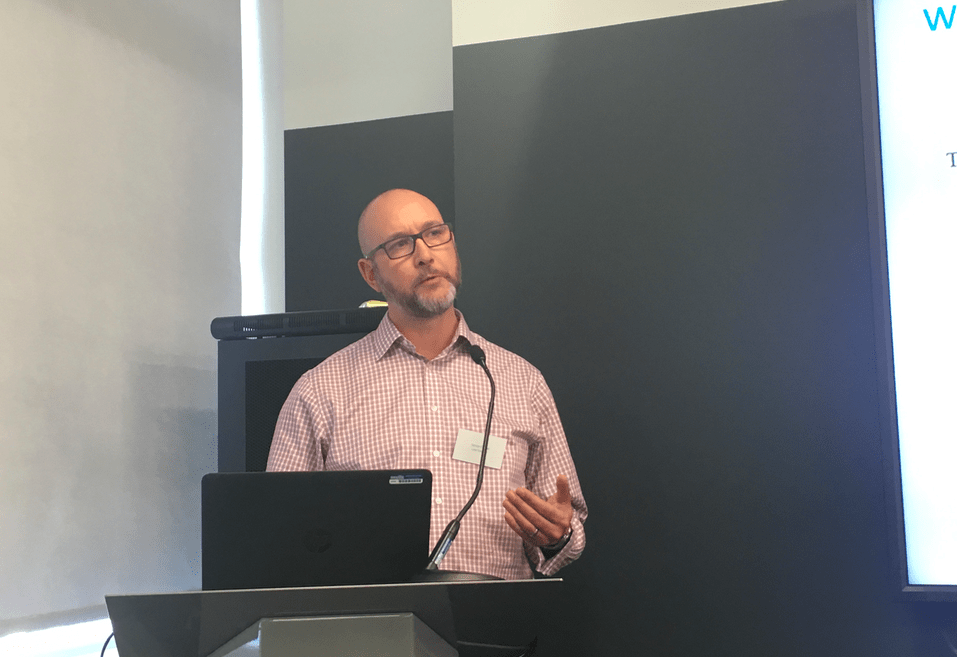
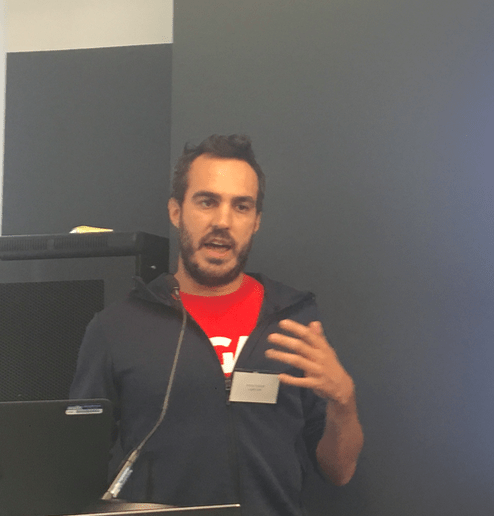
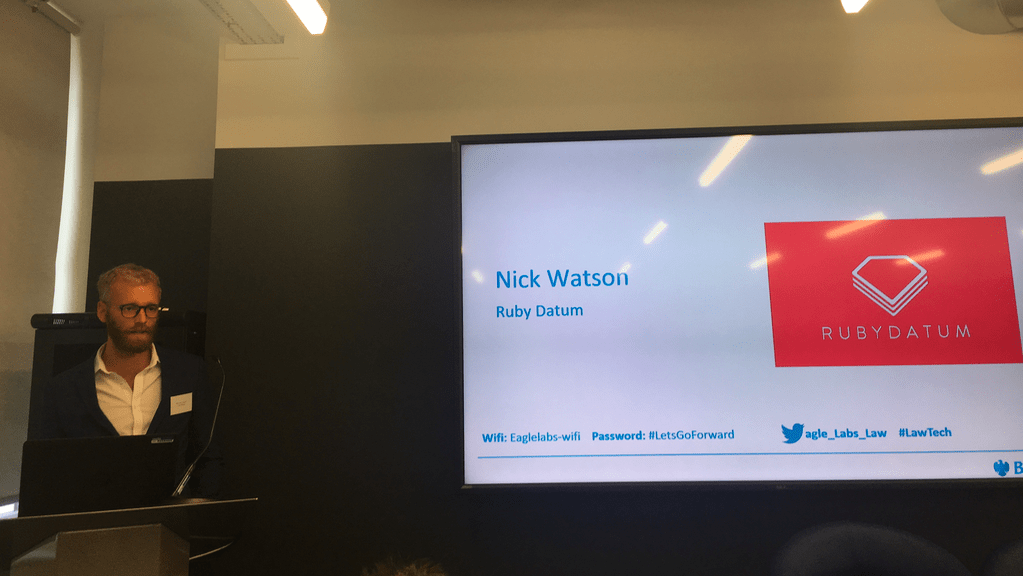
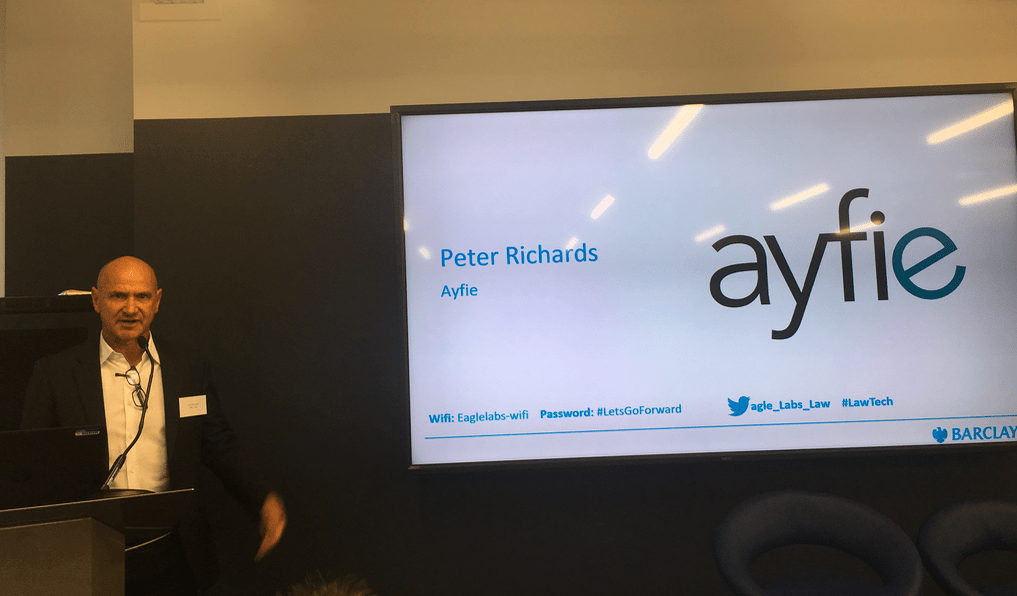
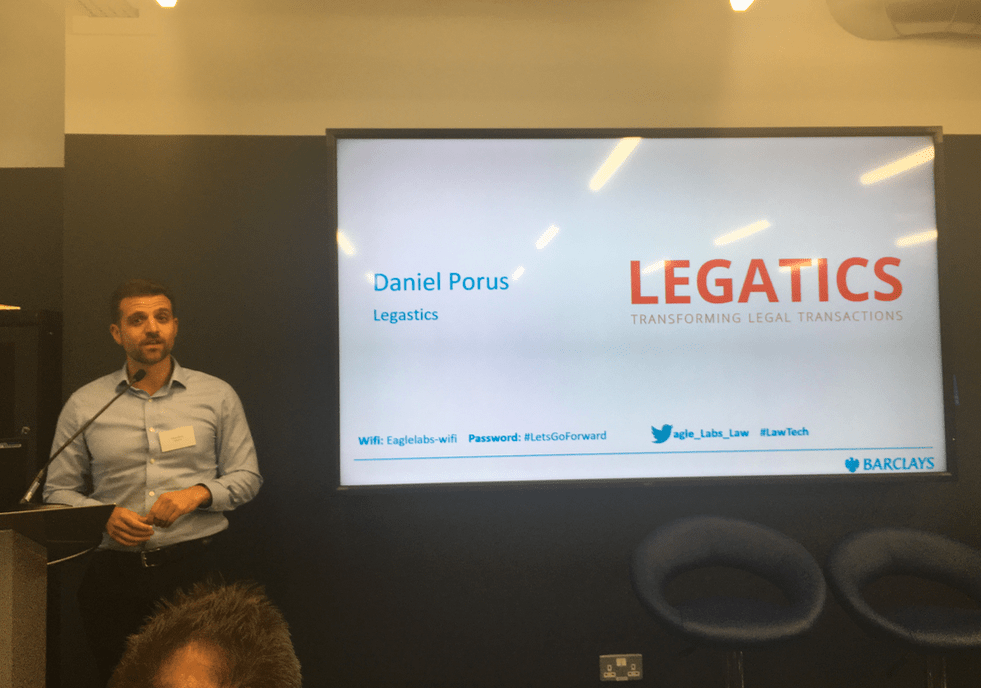
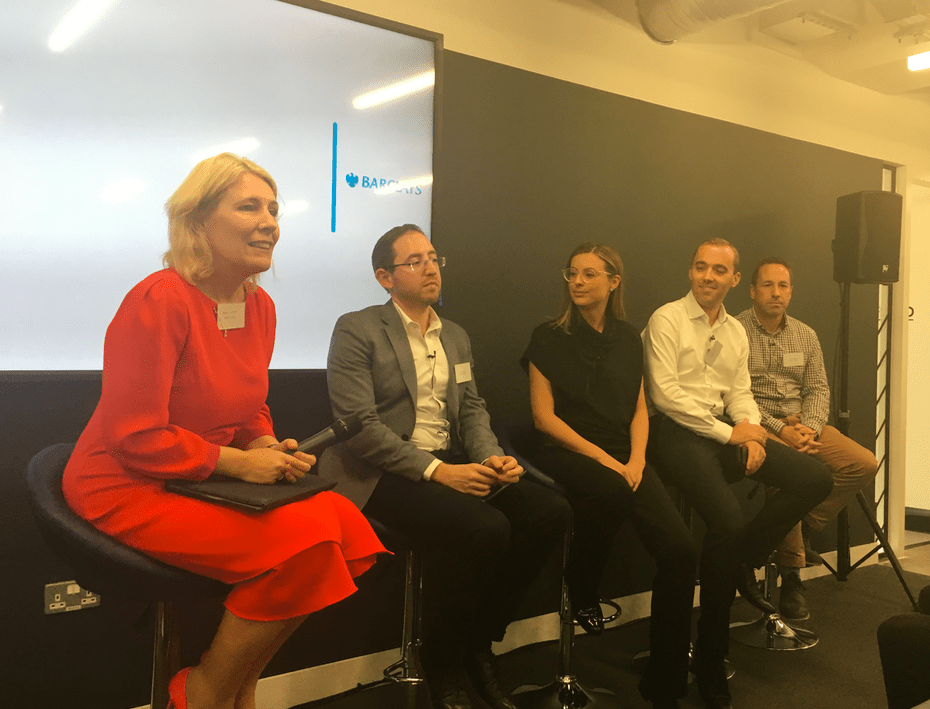
And…
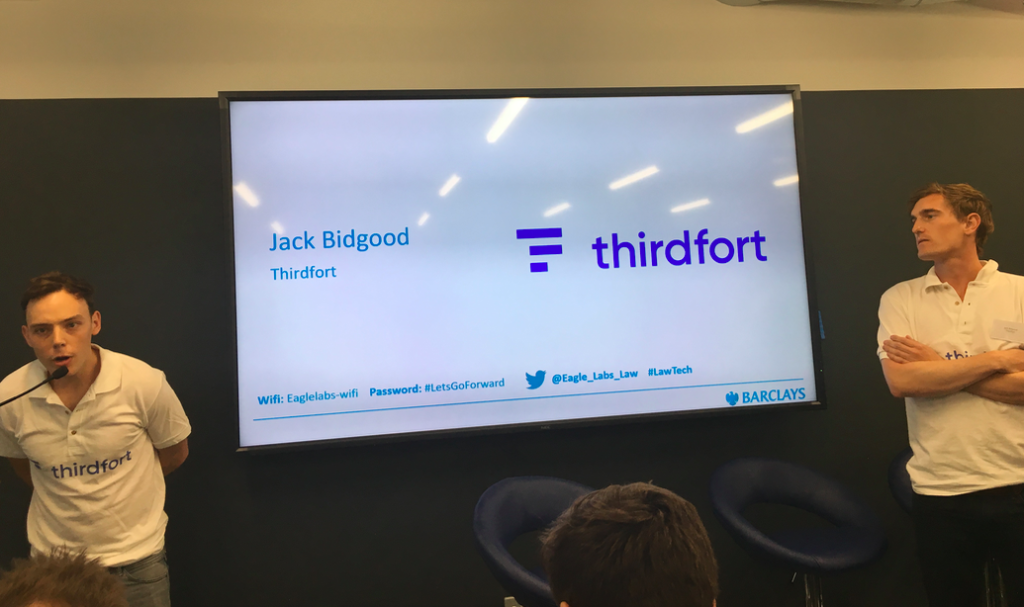
And finally: great legal tech and great food! The perfect combination.
Can’t wait for the next event! Thanks to the team at Barclays!
